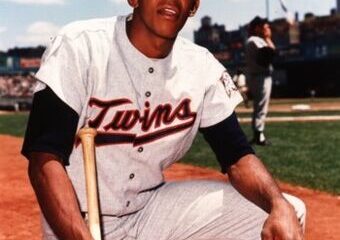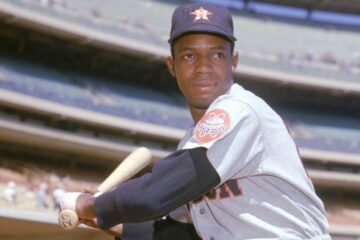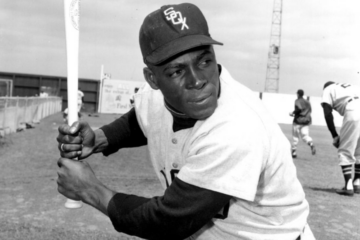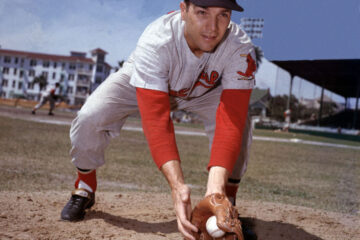The Hall of Fame Index: David Ortiz
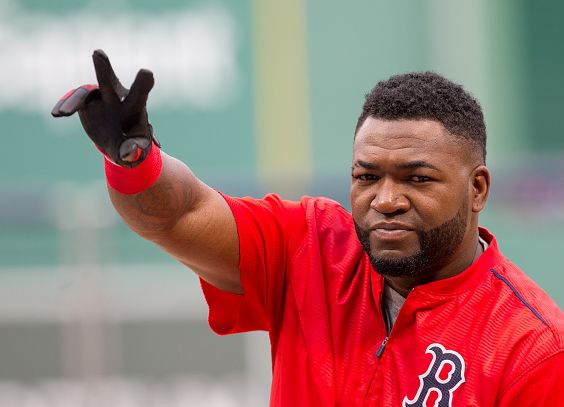
My wife (who is a rocket scientist) always makes fun of me when I call myself a scientist. See, I’m an English teacher by trade and I usually faint when asked to solve any sort of complex equation. So, calling myself a scientist in this case is a bit of a stretch. Still, those of us that study baseball statistics like to think of ourselves as scientists in the sense that we question our findings when they don’t make sense intuitively.
That brings us to David Ortiz and the Hall of Fame Index. After all, we are talking about a guy with more than 500 career home runs and 1700 RBI. We are talking about a guy that is known as the greatest clutch hitter of our generation. Of course he is a Hall of Famer. I say this to preface the results I found when I did the actual research. So, if we go back to the whole science thing we reach the inevitable conclusion that either our assumption about him being a Hall of Famer is wrong or the numbers which we use to judge Hall of Fame fitness are somehow wrong.
Career Value
| BR | BP | FG | Total | |
| Lou Gehrig | 112.4 | 114.4 | 116.3 | 342.7 |
| Jimmie Foxx | 96.4 | 99.1 | 101.8 | 297.3 |
| Frank Thomas | 73.7 | 73.1 | 72.0 | 218.8 |
| Eddie Murray | 68.3 | 65.1 | 72.0 | 205.4 |
| Willie McCovey | 64.4 | 62.3 | 67.4 | 194.1 |
| Harmon Killebrew | 60.3 | 65.0 | 66.1 | 191.4 |
| Hank Greenberg | 57.5 | 59.3 | 61.1 | 177.9 |
| Bill Terry | 54.2 | 55.6 | 57.0 | 166.8 |
| Tony Perez | 53.9 | 47.7 | 58.9 | 160.5 |
| George Sisler | 54.5 | 53.2 | 51.9 | 159.6 |
| David Ortiz | 54.0 | 51.6 | 49.4 | 155.0 |
At first glance we don’t have much of a problem, but we have to remember that we haven’t gotten to peak value yet. A study in why Ortiz suffers in value comes from two primary places. First, we have the designated hitter problem. Some historians scoff at the notion of any primary designated hitter getting into the Hall of Fame. The horses have left the barn on that issue and for someone that deals in statistics, it’s a question of value.
Baseball Reference let’s us see a little into how the sausage is made. They have Ortiz with -21.2 career dWAR. Obviously, he wasn’t actually 21 wins worse than the typical AAA first baseman defensively. What we are looking at is a kind of counterweight to give credit to those that actually do field. There is inherent value in being a replacement level first baseman defensively even if it means you are not a negative value performer. We would have to assume that the other two platforms have similar counterweights. How they are arrived at is beyond my pay grade, but it is fair to question whether they are completely in line with what actually goes on for a player like Ortiz.
The second problem is what I would like to call the Tony Perez problem. If it makes you feel better, I could replace Perez with Gil Hodges and accomplish the same thing. Both players routinely drove in 100 or more runs and teammates would swear on a stack of Bibles that they couldn’t win without them. Unfortunately, logic doesn’t quite agree. The ultimate question is whether Perez and Hodges were as good as they were because they had multiple Hall of Famers on their team or whether those multiple Hall of Famers were as good as they were because they had those two players. I think the answer is pretty obvious if we follow basic logic. In Ortiz’s case, he has put up some impressive counting numbers, but he has also had a ton of talented teammates over the years that have been on base for him.
Peak Value
| BR10 | BP10 | FG10 | Total | |
| Lou Gehrig | 90.1 | 91.4 | 92.7 | 274.2 |
| Jimmie Foxx | 73.7 | 75.7 | 77.7 | 227.1 |
| Frank Thomas | 56.2 | 55.7 | 57.3 | 169.2 |
| Hank Greenberg | 51.5 | 53.3 | 55.1 | 159.9 |
| Bill Terry | 50.4 | 51.6 | 52.8 | 154.8 |
| George Sisler | 50.7 | 49.9 | 49.0 | 149.6 |
| Willie McCovey | 49.3 | 49.3 | 49.6 | 148.2 |
| Harmon Killebrew | 45.8 | 49.0 | 49.0 | 143.8 |
| Eddie Murray | 46.4 | 47.6 | 49.3 | 143.3 |
| Tony Perez | 44.6 | 40.0 | 48.1 | 132.7 |
| David Ortiz | 38.3 | 36.3 | 35.6 | 110.2 |
The peak value numbers bring us directly back to the whole debate between what I like to counting numbers and the more complex numbers that advanced statisticians love to look at. Ortiz drove in 100 or more runs six times during his prime and averaged more than 100 RBI per season during that time. The Red Sox won three World Series titles during those ten seasons and his “clutch” performance has been the stuff of legend.
Ortiz has 357 plate appearances in the postseason in his career and has hit 17 home runs and driven in 60 RBI. We can imagine that the Red Sox will make the postseason again this season. His .962 OPS in the playoffs is a little better than his career .931 OPS. Then again, all but 76 of his plate appearances in the playoffs have come during his ten-year peak. So, he has essentially performed the same in the playoffs as he has in the regular season.
These are all points that can be brought up in a debate at the sports bar. Ortiz certainly would not be the worst Hall of Famer, but his numbers highlight a problem with the way we think about potential Hall of Famers. People focus on home runs and RBI and lose sight of the fact that these numbers are based in part on time and place. Ortiz’s numbers came largely during the greatest offensive period in the game since World War II.
The Hall of Fame Index
| Career | Peak | Total | |
| Lou Gehrig | 342.7 | 274.2 | 616.9 |
| Jimmie Foxx | 297.3 | 227.1 | 524.4 |
| Frank Thomas | 218.8 | 169.2 | 388.0 |
| Eddie Murray | 205.4 | 143.3 | 348.7 |
| Willie McCovey | 194.1 | 148.2 | 342.3 |
| Hank Greenberg | 177.9 | 159.9 | 337.8 |
| Harmon Killebrew | 191.4 | 143.8 | 335.2 |
| Bill Terry | 166.8 | 154.8 | 321.6 |
| George Sisler | 159.6 | 149.6 | 309.2 |
| Tony Perez | 160.5 | 132.7 | 293.2 |
| David Ortiz | 155.0 | 110.2 | 265.2 |
The great thing about the index is that it can be interpreted in any number of ways. If people want to hold to a hard line 300 score for eligibility than we can see Tony Perez as a mistake. I personally would not have put him in and it was somewhat shameful how he got in. The voters for years determined he wasn’t good enough and then some started saying it was because of racism, so some voters were shamed into supporting him. I have nothing against Perez the player or the person. He was a very good baseball player, but players should be judged on their merits.
This of course brings us to Ortiz. There are good reasons to put him in, but I hope the voters give it a little more thought than simply seeing 500+ home runs and giving him an automatic stamp. I would not put him in personally, but I can see a compelling argument that includes his postseason success. On the other hand, he did test positive for PEDs at one point. It certainly will be an fascinating debate when his time comes.


